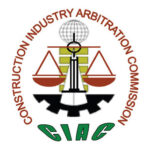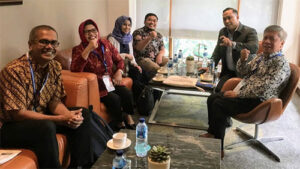 In its Decision dated October 3, 2018 in Tourism Infrastructure and Enterprise Zone Authority v. Global-V Builders Co. (G.R. No. 219708), the Third Division of the Supreme Court affirmed that since the Construction Industry Arbitration Commission’s (“CIAC”) jurisdiction over construction disputes is conferred by law, it cannot be subjected to any condition nor can it be waived or diminished by the stipulation, act or omission of the parties.
In its Decision dated October 3, 2018 in Tourism Infrastructure and Enterprise Zone Authority v. Global-V Builders Co. (G.R. No. 219708), the Third Division of the Supreme Court affirmed that since the Construction Industry Arbitration Commission’s (“CIAC”) jurisdiction over construction disputes is conferred by law, it cannot be subjected to any condition nor can it be waived or diminished by the stipulation, act or omission of the parties.
On July 31, 2012, Global-V Builders Co. (“Global-V”) filed a Request for Arbitration and a Complaint before the CIAC to seek payment from the Tourism Infrastructure and Enterprise Zone Authority (“TIEZA”) (previously, the Philippine Tourism Authority) of unpaid bills, interest, moral and exemplary damages, and attorney’s fees under separate Memorandums of Agreement (“MOAs”) for five construction projects. Instead of an Answer, TIEZA filed a Refusal of Arbitration (Motion to Dismiss for Lack of Jurisdiction), arguing that CIAC had no jurisdiction because the Complaint did not allege an agreement to arbitrate and the contracts did not contain an arbitration agreement.
 The Arbitral Tribunal denied TIEZA’s jurisdictional objection and ruled in favor of Global-V in the Final Award. On appeal, the Court of Appeals (“CA”) initially nullified the Final Award and dismissed Global-V’s claim on the ground that the parties did not agree to submit their disputes to arbitration. However, upon TIEZA’s motion for reconsideration, the CA reversed its earlier decision and ruled that the parties’ agreement to submit to arbitration was found in Clause 20.2 of the General Conditions of Contract, which was attached to the MOAs. The CA also held that GlobalV’s failure to allege the arbitration agreement in its Complaint or Request for Arbitration did not deprive CIAC of its jurisdiction under the law.
The Arbitral Tribunal denied TIEZA’s jurisdictional objection and ruled in favor of Global-V in the Final Award. On appeal, the Court of Appeals (“CA”) initially nullified the Final Award and dismissed Global-V’s claim on the ground that the parties did not agree to submit their disputes to arbitration. However, upon TIEZA’s motion for reconsideration, the CA reversed its earlier decision and ruled that the parties’ agreement to submit to arbitration was found in Clause 20.2 of the General Conditions of Contract, which was attached to the MOAs. The CA also held that GlobalV’s failure to allege the arbitration agreement in its Complaint or Request for Arbitration did not deprive CIAC of its jurisdiction under the law.
TIEZA appealed the CA decision to the Supreme Court, where it argued that there was no effective arbitration clause between the parties because the suspensive condition in Clause 20 of the General Conditions of Contract―that the process of arbitration be incorporated in the MOA— was not complied with.
In the opinion by Peralta, J., the Supreme Court agreed with the CA that the dispute between TIEZA and Global-V was within the jurisdiction of the CIAC to resolve. For one, the arbitration clause in Clause 20.2 of the General Conditions of Contract that formed part of the MOA was the parties’ agreement to submit to CIAC’s jurisdiction. Moreover, since the MOAs were covered by Republic Act No. 9184 (2002) (“R.A. 9184”), the provision on settlement of disputes by arbitration under Section 59 of R.A. 9184 formed part of the MOAs. The fact that the arbitration clause was not incorporated in the contract was of no moment. As CIAC’s jurisdiction was conferred by Executive Order No. 1008 (“E.O. 1008”) and R.A. 9184, the applicable process of arbitration could only refer to the CIAC Rules.
The Supreme Court also rejected TIEZA’s claim that Global-V’s demand for payment should have first been brought as a money claim before the COA. The Tribunal cited Section 4 of E.O. 1008 providing that the CIAC shall have original and exclusive jurisdiction over disputes involving construction contracts, and held that its text was broad enough to cover contractual money claims.
Negotiation and mediation in the era of Trump politics
PART 2
PDRC Executive Director Bing Pabilla reports on the highlights of the 5th AMA Conference in Jakarta, Indonesia. In the fourth plenary session held later in the morning of the second day, Prof. Nadja Alexander and Mr. George Lim collaborated on giving the participants a very interesting update on the status of the Singapore Convention on Mediation, which is the short name approved by UNCITRAL for the United Nations Convention on International Settlement Agreements Resulting from Mediation. Once ratified, the Singapore Convention on Mediation will, for the first time, facilitate the enforcement of international commercial settlement agreements resulting from mediation.
However, the Singapore Convention will exclude settlement agreements: (1) that have been approved by a court or have been concluded in the course of court proceedings; (2) that are enforceable as a judgment in the state of that court; or (3) that have been recorded and are enforceable as an arbitral award. The Convention is set to be signed in August 2019 in Singapore.
The ratification of the Singapore Convention on Mediation in 2019 will be a significant milestone as it will expedite the enforcement of international commercial settlement agreements resulting from mediation. For countries like the Philippines, where mediation is one of the more popular modes of ADR, this initiative has been long awaited.
It is also timely because it will add international flavor to the Mediation Chapter of the Alternative Dispute Resolution Act of 2004 currently undergoing revision under the direction of the Office for Alternative Dispute Resolution (OADR) of the Department of Justice.
PDRCI, as an ADR service provider, will start gearing itself up to the challenges and the opportunities that the Convention will bring, e.g., revising its new Mediation Rules to conform with the UNCITRAL Model Law on International Commercial Mediation and International Settlement Agreements Resulting from Mediation, 2018, conducting training on mediation, and eventually training and accrediting its own mediators.

Prof. Dr. Huala Adolf, Breakout Session Moderator, leftmost; Judge Edy
Wilboho, 2nd from left; Mr. Eka Nagara Ramelan, Head, Event Organizer,
2nd from right; and Mr. Pabilla.
The breakout session on Mediation in Court and Trial held in the afternoon of the second day (October 25), where the author was one of the presenters together with Judge Edy Wilbowo of the Indonesian Supreme Court, was packed although the venue was only one-third of the size for the plenary session.
The paper presented by the author was about his experiences when he was still a Supreme Court-accredited court-annexed mediator and as Executive Director of the Philippine Mediation Foundation, Inc. (PMFI) during the early years of the implementation of the Supreme Court’s court-annexed mediation. He hoped that the experiences he shared would serve as a catalyst to sustain the increasing level of passion of court-annexed mediators in assisting the parties settle their disputes.
One important question raised by a regional participant was what a mediator should do if the lawyer of one of the parties challenges his competence as a mediator. The author replied that the challenge must be made in writing and the mediator should attached the challenge to the Mediator’s Report terminating the proceedings, for submission to the court that appointed the mediator. The mediator is considered an officer of the court while performing his/er duties. As such, it is the court that has the sole authority to terminate the mediator’s services and appoint another one who may be mutually acceptable to the parties.
For his part, Judge Edy Wilbowo presented her paper, “An Overview of Indonesia Supreme Court Rule on the Procedure of Court-annexed Mediation,” in Bahasa Indonesia, assisted by an interpreter. In all, it was an excellent conference where every participant learned a new lessons in the art of mediating disputes in the Trumpian era.
The Philippines will host the 6th AMA Conference in 2020.
